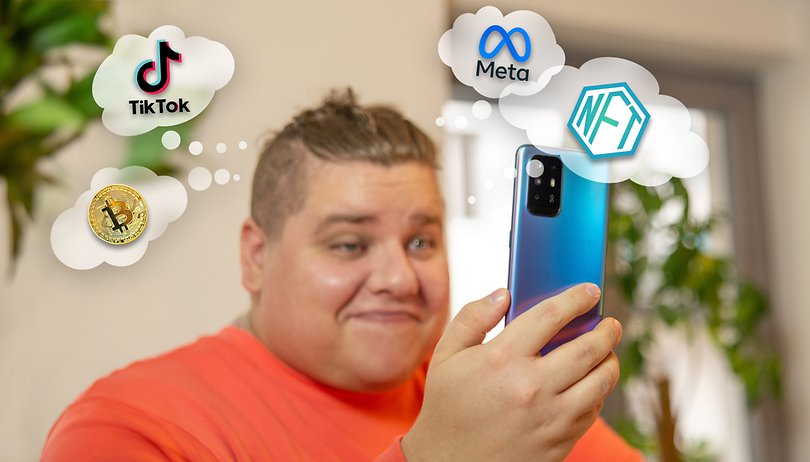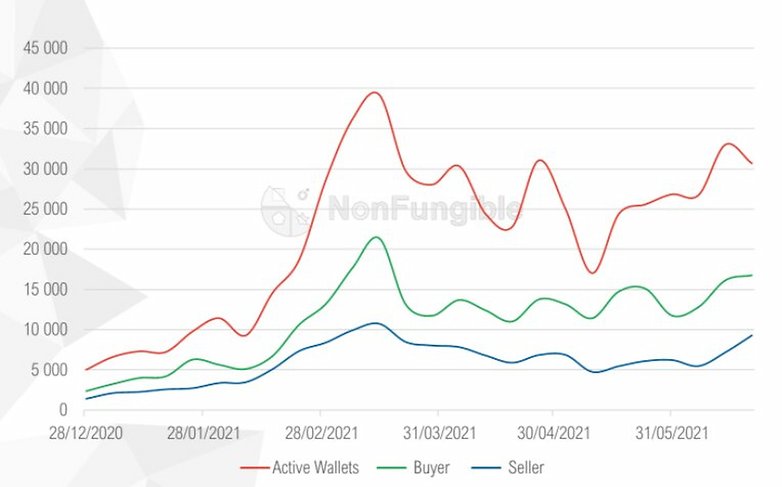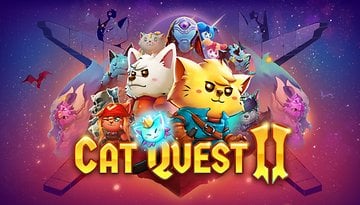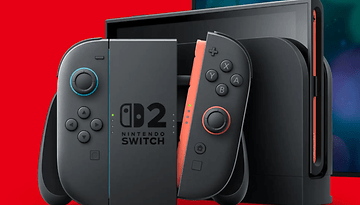NFT, Crypto and Metaverse: Why I try to understand the hype


"If you're 50 and don't have a 10,000 dollar JPEG in your NAS, you've really missed out on life." Don't panic, it is okay, get on board the hype train, I'm driving.
In this post, I'm not going to set myself up as a professor and pretend to teach you about NFT or Bitcoin after doing a couple of Google searches. But I'll try to explain why I'm trying to catch up on some phenomena like NFTs, cryptocurrencies, the metaverse and... TikTok. Yes, TikTok. T-I-K...T-O-K!!!
We're coming to the end of the year, I'm nearing the end of my 20s, and I admit that Dogecoin and non-fungible tokens don't speak to me at all. I'm actually even a little ashamed to admit it. After all, I'm a tech journalist and supposed to be absolutely omniscient about everything tech-related, right?
But instead, I feel like I'm getting more and more left behind, missing out on a whole range of sociocultural opportunities and getting stuck in my very smartphone, very hardware niche. In short, I feel like I'm becoming a boomer.

My preconception: NFTs, crypto and TikTok are the hype economy at its peak
What do I mean by this? The hype economy, in my opinion, is the outcome of artificially inflating the value of one's product or service by associating it more with emotions than with more tangible elements such as manufacturing quality, for example.
By playing on emotions, especially the fear of missing out (FOMO), you amplify the demand for your product or service, which is supposed to remedy this fear. Add to that a scarcity effect with limited editions and the creation of codes, jokes and other memes that only "those who know" can understand, and you have the perfect recipe for a hyped product.
This isn't an ultra-new phenomenon, nor is it exclusive to the tech industry or the ICT market. Take Nike, which sells its sneakers in artificially limited quantities and by lottery so that they can be resold for ten times more on StockX. It's the same principle as Clubhouse, which played the private lounge 3.0 game with its restricted invitation system.
The last and most striking example for me is Carl Pei who reminds of Anthony Hopkins in Westworld, philosophizing about ambient computing, all this to release true wireless headphones, which are certainly of good quality, but very classic with the Nothing Ear (1). I'll just throw in these explanatory paragraphs to illustrate the vision I had of NFTs, crypto and all that "zoomer stuff."
A refresher course on what NFTs are from the Wall Street Journal:
Bubbles that were about to burst
I used to think, for example, that most cryptocurrencies that aren't Bitcoin or Ethereum were just Ponzi schemes. And that they were only sustained by hype, with those of new buyers only inflating the value of the wallets of those who bought before them and nothing else.
Same with NFTs, those titles to virtual "objects" that, to my layman's eyes, were simply about showing how rich you are since you can spend millions on a PNG file that anyone can copy or download for free. It's called "fuck you money" when you have so much money that you can literally fuck everyone else over. But for me, it was like paying to give your name to a star. In other words, I thought it was totally stupid.
And what about TikTok? Its algorithm is designed to make you feel like a celebrity with an average number of views on videos totally disproportionate to what is done on YouTube, for example. Or Facebook turned Meta, which thinks it has reinvented the wheel and seems to have forgotten the existence of Second Life years ago.
In short, a lot of hype but nothing concrete. I saw these trends simply as memes. Something trendy that a bunch of early adopters and their followers maintain to feed their sense of ownership and attract newcomers -aka potential new buyers- by falsely inflating their asset values.

What I learned from playing devil's advocate
This gets us to the heart of this article, the part where I forcibly break away from my oh-so-comfortable preconceptions and try to understand, not these new concepts themselves, but their value. Because when you're faced with something that's exclusionary, that's meant to be the preserve of a handful of connoisseurs, it doesn't necessarily make you want to be open-minded.
But in the end, I tell myself that hype is not inherently good or bad, it all depends on what you do with it. Let's take cryptocurrencies, for example. Yes, the market has seen a multitude of alternative cryptos emerge. And most of them turned out to be scams or at least pure speculative bubbles created in order for some to get rich on the backs of others. So much so that they are literally called "shitcoins".
But among them, Dogecoin, a cryptocurrency that started as a joke and became a meme on a global scale, has nevertheless allowed laymen and above all, "normal" people to become interested in cryptos as a cultural product and no longer simply financial.
We now see people participating in the financial markets as a form of consumption, for the entertainment and experience of a community as much as for the investment itself. And these "cultural assets" are necessarily much more volatile as they depend on the community that supports them, as long as the joke continues to be funny at least.
But in an increasingly digital and open economy, jokes move markets. The GameStop stock drama in the US has shown us this, although the success was short-lived.
The GameStop case simplified in 10 minutes by TLDR News:
Into the NFTaverse
And what better way to illustrate this cultural dimension of new digital assets other than NFTs. Here too, we can be alarmed by the volatility of the market, the disproportion between the number of sellers and buyers and the soaring prices. And one can also remain perplexed by the absurdity of the concept of owning a non-material good that anyone can reproduce almost identically, even if one is the only one to have the original.
But I think that reinstating some kind of property right on digital cultural goods is not such a bad idea in the dematerialized era. We've lost so much control over the games or music we buy that we can't even dispose of freely. I'd love to buy a piece of a video game that made an impression on me before it's no longer on the market and then I'd love to buy something I've seen in a video game before the publisher removes it from the store (a very interesting video on this subject about the game Driver: San Francisco).
Of course, we shouldn't be naive and it's not by chance that Ubisoft, one of the greediest video game publishers/developers in the worldo publishers/developers in the industry, has launched into blockchain gaming with NFTs associated with in-game elements. But imagine if a developer took this a step further. That you could buy a character for example that would be unique in the game and that you could progress said character by playing the game and unlock upgrades, etc. An evolving NFT that actually serves a purpose.
It's already more fascinating than buying a vinyl, a pair of pumps or even a figurine that will never be taken out of their boxes and will gather dust in a cupboard. The Blankos Block Party game from Mythical Games presented at E3 2021 is one of the first attempts, and I find the concept fascinating.
The video presentation of the game Blankos Block Party:
And this perspective makes even more sense when viewed in the context of a metaverse. The value of a good or its utility are usually corollaries. But the gap between the two can be wider or narrower, depending on how we perceive them. A bottle of water has the same utility in the middle of the sea as in the middle of the desert and fulfills the same function, but it will not have the same value.
It's the same with NFTs. If you don't touch social networks or video games in general and your social interactions are mostly physical, owning a virtual object is of little importance. But if you invest a lot of your time in a virtual world, and have interactions with people there, it's already more relevant.
If you've ever been addicted to a multiplayer game with in-app purchases of cosmetic items, you know what I mean. Except that here, you can showcase your skin or gear in and out of the game. Personally, I see it as a mix between Counter Strike Go skins and Pokémon cards.
The metaverse isn't going to reinvent anything compared to what have been tried during the Second Life era or even what is currently being done on VRChat. It's about finding new ways to experience the same things. You can't reinvent the concept of talking/meeting people, enjoying art, creating fiction, buying things. These are behaviors we've always had, but the goal is to find new ways, new mediums to experience them.
Conclusion
You don't have to be a crypto bro. You don't need to become a billionaire by selling png files. And you certainly don't need a 28-year-old brat to teach you about life.
This long "mood check" isn't meant to change your mind about anything. It's just an invitation to expand OUR horizons. Not to enlighten you with my wisdom but to intrigue you.
Whether in the technosphere or any other niche, the goal is to debate things, debate new things. Is it good? Is it bad? Is it really new compared to what was done before? Yes, the more time passes, the less inclined we are to fill our brains with new information to process. In 2021, available brain time is literally money.
But I tell myself that I have stopped making that investment, that investment of time, I just sit on the sidelines. At least that's what I fear. And maybe that's the FOMO talking again. But I've philosophized enough for today.



















